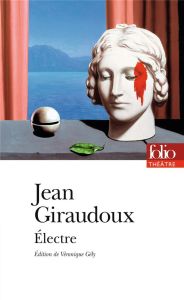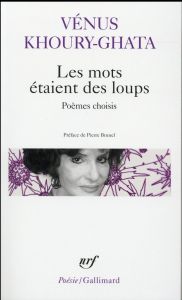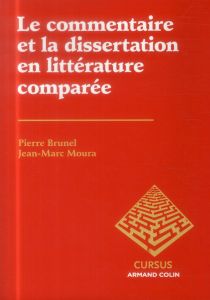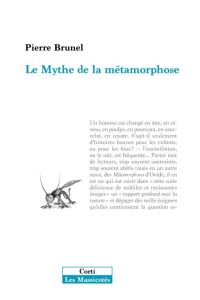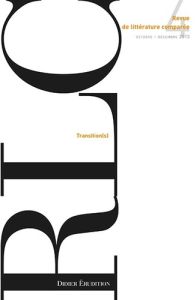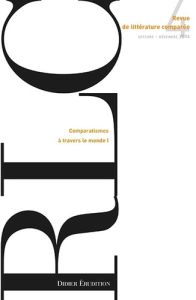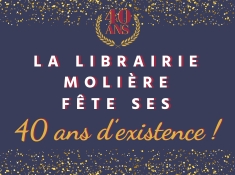Revue de littérature comparée N° 353, 1/2015
Christophe Corbier, Nietzsche, Brecht, Claudel : Roland Barthes face à la tragédie musicale grecque, RLCLXXXIX, n°1, janvier-mars 2015, p. 5-28. Du mémoire philologique de 1941 consacré aux scènes d'évocation et d'incantation dans la tragédie grecque jusqu'à l'analyse structuraliste du "théâtre grec" en 1965, Roland Barthes s'est régulièrement penché sur la tragédie musicale des Grecs afin de réfléchir au statut de la musique dramatique. Notre intention est donc d'étudier conjointement le théâtre et la musique dans une partie de l'oeuvre de Barthes avant 1968 et de montrer comment la tragédie grecque a constitué pendant près de trois décennies une référence constante, quoique méconnue. Barthes a en effet engagé très tôt un dialogue avec Nietzsche, avant de recevoir la révélation de Brecht ; mais il s'est aussi intéressé à Claudel, dont l'Orestie offre selon lui un modèle pour les représentations contemporaines de tragédie grecque, en dépit de la discontinuité fondamentale entre la Grèce antique et l'époque moderne. La théâtralité, le dionysiaque, le choeur, le rôle de la musique dramatique constituent alors autant de problèmes que l'auteur de Sur Racine analyse à plusieurs reprises entre 1941 et 1965, dans une perspective non aristotélicienne et antiromantique. Dimitri TOKAREV, Les illuminations d'un Rimbaud russe : Boris Poplavsky et son Journal d'Apollon Bézobrazov, RLCLXXXIX, n°1, janvier-mars 2015, p. 29-50. L'article est consacré aux échos de l'oeuvre de Rimbaud et surtout des Illuminations dans les poèmes en prose du poète et écrivain russe émigré Boris Poplavsky (1903-1935). Poplavsky, figure emblématique de la nouvelle génération des écrivains émigrés dite la "génération inaperçue" , était très sensible aux influences étrangères et voyait dans la personne de Rimbaud une parfaite incarnation de la poésie française qu'il essaya d'égaler en composant son Journal d'Apollon Bézobrazov. Atinati Mamatsashvili, Le signe de l'historicité dans la transformation de la parole poétique en acte poétique chez Francis Ponge et Giorgi Léonidzé, RLCLXXXIX, n°1, janvier-mars 2015, p. 51-64. Notre article se construit autour des textes poétiques conçus dans un espace politico-historique dissemblable. Dans Le Carnet du Bois de pin (1940) Francis Ponge aborde un objet qui ne comporte, à première vue, aucun signe distinctif historique, mais donne néanmoins lieu à l'émergence d'une temporalité déterminée. Le procédé adopté par Ponge fait écho à celui de Giorgi Léonidzé, poète symboliste géorgien (L'Arbre, 1931). Ce qu'on vise par ladite étude, c'est de démontrer par quels moyens méthodologiques et conceptuels le texte littéraire arrive à s'affranchir de l'historicité pour devenir pur texte poétique, tout en constituant, néanmoins, dans cet état même, le texte politique. Céline Roussel, Quand l'aveugle prend sa plume : dialectiques d'une écriture aveugle de soi, RLCLXXXIX, n°1, janvier-mars 2015, p. 65-76. L'article "Quand l'aveugle prend sa plume : dialectiques d'une écriture aveugle de soi" se propose d'examiner, à la lumière de réflexions de Derrida, les implications de la cécité sur l'écriture d'une oeuvre intime à partir de The Story of My Life de Helen Keller et de On Sight and Insight : A Journey into the World of Blindness de John M. Hull. Comment écrire, au sens le plus concret du terme, lorsqu'on ne voit pas ?? Qu'advient-il de cette texture, de cette corporéité donnée au texte grâce au braille lorsque l'oeuvre est publiée sous forme d'un livre ordinaire en noir et blanc ?? Les divers dédoublements que subit l'acte d'écriture ont une influence sur la proximité de l'auteur aveugle avec son oeuvre autobiographique, qui oscille entre le visible et l'invisible, le matériel et l'immatériel. Abstracts Christophe Corbier, Nietzsche, Brecht, Claudel : Roland Barthes on Greek Musical Tragedy, RLCLXXXIX (in French), no. 1, jan. -march 2015, p. 5-28. In this paper, we will study the relation between music and theater in a few texts of Roland Barthes, particularly his philological dissertation about Greek tragedy (1941), "Pouvoirs de la tragédie antique" (1953) and "Le théâtre grec" (1965). Firtsly, we will show how the concept of "théâtralité" is partially constructed on the basis of Barthes' interpretation of Aeschylean tragedy. Then, the prominent figure of Aeschylus leads him to a dialogue with Nietzsche, Brecht and Claudel, whose Orestie, written in the beginning of the twentieth century with Darius Milhaud, was always a model for Barthes. The French theoretician is interested in three main issues : music and its effects, Dionysius and the Dionysian, the chorus. After Nietzsche and Brecht, he proposes a non Aristotelian and anti-Romantic analysis of Greek tragedy ; therefore, this analysis could be compared to the contemporary researches of such Hellenists as George Thomson or Jean-Pierre Vernant. Dimitri TOKAREV, The illuminations of a Russian Rimbaud : Boris Poplavsky and his Journal of Apollo Bezobrazov, RLCLXXXIX (in French), no. 1, jan. -march 2015, p. 29-50. The article is devoted to the echoes of Rimbaud's oeuvre and especially the Illuminations in the prose poems by the Russian émigré poet and writer Boris Poplavsky (1903-1935). Poplavsky, an emblematic figure of the new generation of émigré writers known as the "unnoticed generation", was very sensible to foreign influences and considered Rimbaud as a perfect incarnation of the French poetry which he tried to match in his Journal of Apollo Bezobrazov. Atinati Mamatsashvili, The Sign of Historicity in the Transformation of the Poetic Word into the Poetic Act : Francis Ponge and Giorgi Léonidzé, RLCLXXXIX (in French), no. 1, jan. -march 2015, p. 51-64. Our article focuses on the poetic texts conceived in dissimilar politico-historical spaces. In the Le Carnet du Bois de pin (1940) Francis Ponge approaches an object which contains, at first sight, no historically distinguishing feature, but which nonetheless gives rise to the emergence of a definite temporality. The process adopted by Ponge echoes that of Giorgi Léonidzé, Georgian symbolist poet (The Tree, 1931). The purpose of this study consists in demonstrating by which methodological and conceptual means the literary text arrives to get over the historicity in order to appropriate the notion of the pure literary text, constituting, nevertheless, the political writing. Céline Roussel, When the blind take up their pens : the dialectics of a blind person'sautobiography, RLCLXXXIX (in French), no. 1, jan. -march 2015, p. 65-76. The article "When the blind take up their pens : the dialectics of a blind person's autobiography" seeks to examine, building on Derrida's analysis, the implications of blindness on the writing of an intimate work, taking The Story of My Life by Helen Keller and On Sight and Insight : A Journey into the World of Blindness by John M. Hull as its starting point. How can one write, in the most basic sense of the term, without being able to see ? What becomes of the texture, of the physical embodiment of a text written in braille, when the work is published as an ordinary book in black and white ? The various transformations which the act of writing undergoes have an influence on the proximity of the blind author to his autobiographical work, which fluctuates between the visible and the invisible, the tangible and the intangible.
25,00 €
Disponible sur commande
EAN
9782252039861
Caractéristiques
| EAN | 9782252039861 |
|---|---|
| Titre | Revue de littérature comparée N° 353, 1/2015 |
| Auteur | Gély Véronique - Brunel Pierre - Pageaux Daniel-He |
| Editeur | KLINCKSIECK |
| Largeur | 150mm |
| Poids | 195gr |
| Date de parution | 05/09/2015 |
| Nombre de pages | 128 |
| Emprunter ce livre | Vente uniquement |



